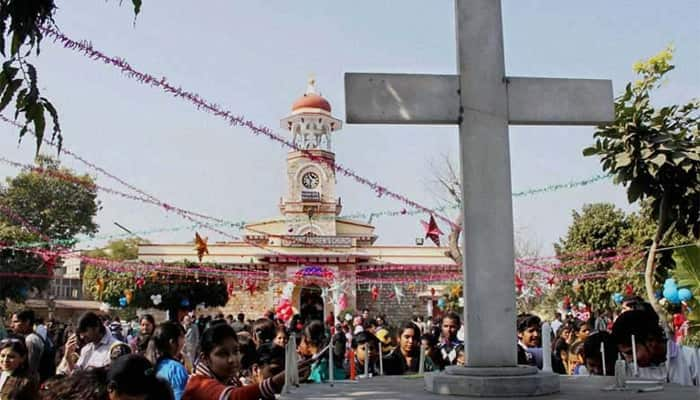Bengaluru: The Church in India has identified 'growing intolerance', 'narrow, culture-based interpretation of nationalism' and 'saffronisation of the education system' as main challenges facing it.
The key challenges were identified at the 32nd plenary of the Catholic Bishops Conference of India (CBCI), which ended here on Wednesday.
The ambiguous stand of the Central government on the issue of intolerance amid growing fundamentalism also echoed at the meet, which had the theme ‘Response of the Church in India to present day challenges’, The Indian Express reported.
CBCI president Cardinal Baselios Cleemis said at the plenary: “narrow, unitary cultural nationalism… widespread intolerance… a systematic concerted effort to manipulate the education system’’ are the main challenges facing the Church in India.
The CBCI further declared that it would usher in a new way of thinking in the Church.
“We want to bring in a new way of being a church, of looking at the country from a faith point of view. Not a fundamentalist approach but keeping an open mind to build the nation that has been in existence for thousands of years and which has a population of diverse faiths, culture, ethnicity and language. This is our pastoral plan and not a political manifesto," Cardinal Cleemis said, as per the daily.
“We do believe that this is a country with diverse realities and cultures and everybody has got an obligation to fulfil towards the nation. We say that our moral values is to accept everyone. I should accept everyone, not just people who adhere to my views. That is not the way India remained for centuries. India remains a united culture, a vision that is expressed in different ways,’’ he said.
“We don’t have a clear picture from the government on the issue of intolerance. Some people sometimes say positive things and the next day we have someone saying the opposite. We don’t know what to believe. As we see it, there is a growing tendency of fundamentalism in this country which has to be stopped. This is against the nature of this great tradition,’’ he stated further.
The CBCI rued that church-run schools and institutions are not kept in mind when new education initiatives are planned.
“Saffronisation in education is a concern. Looking at our Indian reality only from one perspective is a danger. It is a threat to the nation. We are not demanding that the only way is the Catholic way. The government must include us in discussions on how to modernise education in India because we are in the field. We are in the most remote areas. Natural justice mandates that we should also be heard in deciding a new structure of education,’’ Cardinal Cleemis said.
“We find a growing tendency at the moment of not consulting anyone. Those who disagree are seen as enemies of this country or what? We should listen to everyone,’’ he said.
“India’s secularism is not against the spiritual and divine as secularism is understood in the West. India’s secularism is not against religion or belief but there is no monopoly of religion. Everybody has the right to believe, practice and propagate. We want to highlight that. Unilateral understanding of one religion can also create confusion, so things like atheism come in, bringing down the value of religious life and orientation of people,’’ Cardinal Cleemis said.
The recent attack on a church in Chhattisgarh's capital Raipur was also discussed at the week-long plenary.
“It happened at a time of prayer. This is never heard of in our country that people are attacked when they are praying,’’ he said.
















